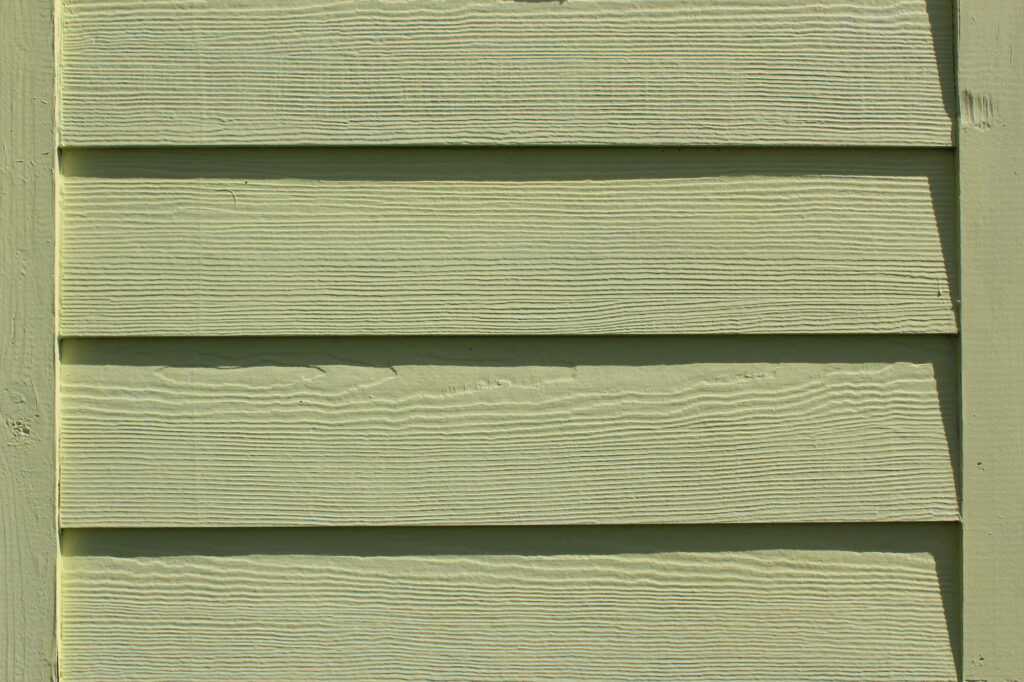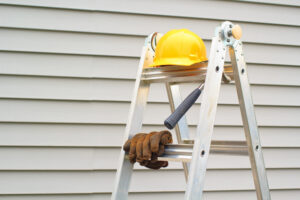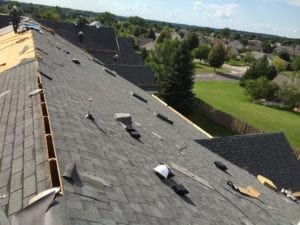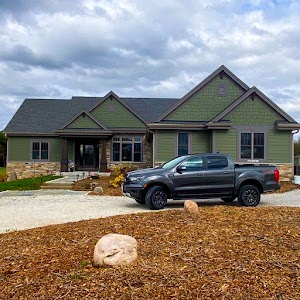Replacing the siding on your home is an extensive job—you could end up spending over $20,000.
So you want the material you choose to be durable and last a long time. We’ve put together this guide to help you learn more about your options and to show you what type of siding is the best pick for your home.
Keep reading below for some helpful tips!
The Lifespan of Siding: A Closer Look
It’s difficult to give an exact lifespan for residential siding because the number of years it lasts is largely dependent on external factors, such as how well you maintain it and what type of weather it has to withstand. That said, in the right conditions, your siding can last as long as the house itself.
Here’s a closer look at common types of siding and how long they last:
- Vinyl – 20 to 40 years (and even longer in some cases)
- Metal (like aluminum, steel, etc.) – 50+ years
- Stone – 20 to 75 years (depending on if it’s manufactured or natural)
- Brick – 20 to 25 years
- Wood – 20 to 40 years
- LP Smart Siding – 50 years
These numbers are just estimates. If you don’t maintain your siding, you might find yourself replacing it a lot sooner than expected. On the other hand, you may be able to get even more life out of your siding than predicted.
What Is the Most Durable Type of Siding?
After looking at the list above, you might stone siding is the most durable option for your home because it lasts the longest. However, lifespan isn’t the only thing you need to consider when picking siding.
For example, stone siding isn’t the best fit for areas that get a lot of moisture. The water can leak through weak spots and get behind the siding, which can lead to mold growth and rot.
Stone is also heavy, and if your home doesn’t have the right support, it might not be able to hold the weight. Since you can’t recycle stone siding when it comes time to replace it, this option isn’t environmentally friendly either.
You might be better off choosing vinyl siding even though it doesn’t last as long.
So what’s the most durable type of siding?
It’s impossible to give that title to a single material. Vinyl siding can be more durable than metal siding in some environments, but in others, the two can switch places.
How to Pick the Right Residential Siding for Your Home
Instead of basing your decision solely on the lifespan of a siding material, you should spend some time researching the pros and cons of different options. Make sure you think about the following factors as well.
Where You Live
This is one of the most important things to consider when choosing siding for your home. What type of weather do you get? Always compare the climate to the siding you want to see if it will be a good fit for your location.
If you live in a place that gets a lot of moisture, you should avoid things like:
- Stone (can trap water behind the surface)
- Wood (too much moisture can lead to rotting and warping)
- Metal (it might rust)
If your area gets a lot of heat or sees a lot of fires, you might want to choose:
- Brick
- Stone
- Metal
- Vinyl
If you’re looking for the most eco-friendly choice to save you money on your energy bill, you should pick:
- Vinyl
- Metal
- LP Smart Siding
Trying to install wood on a home in a humid environment will only cost you more money in the long run. You’ll have to pour a lot of your budget into maintaining it, and you may have to replace it in the end anyway.
Your Budget
Vinyl siding is one of the most affordable options out there. Add this to its durability and versatility, and you’ll figure out why it has become the most popular residential siding in America. If you’re working with a tight budget, you should stick to this material.
If you have a bit more wiggle room, though, you can consider more expensive options like metal and wood. Things like brick or stone will have a high upfront cost, so you might want to stay away from them.
Design
What material will match the overall design of your home? Putting metal siding on a ranch-style home will look out of place and awkward, so make sure you think about the aesthetics and the color.
Keep in mind, while you can always paint over things like vinyl, brick siding doesn’t have as much flexibility. If you want a lot of design choices, you should consider vinyl, metal, wood, or LP smart siding.
Think About Maintenance
How much time and money do you want to put into your siding? If you don’t want to worry about upkeep, you need to choose something that doesn’t need a lot of attention, such as vinyl or LP smart siding. You’ll have to spend more time taking care of materials like wood.
Taking the First Step Toward Your New Exterior Siding
Are you still trying to decide what type of siding will work best on your home? Our team at Heins Contracting can help you pick the best choice for your area and guide you through the installation process.
Don’t wait to get in touch with us today! We can give you a free estimate to help you get started or answer any of your questions.







